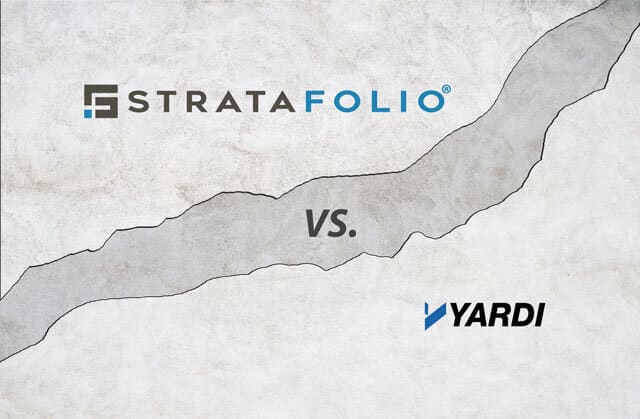Commercial real estate property management is the process of turning properties into valuable assets that work seamlessly for owners, tenants, and the businesses they house. Property managers are like orchestra conductors, harmonizing the day-to-day operations of offices, shopping centers, retail spaces, storage facilities, and industrial buildings.
Commercial property managers are valuable to building owners. They help those who do not have the time or experience to market and manage properties on their own.
Property management involves enhancing tenant satisfaction, carefully maintaining spaces, and boosting financial performance. These activities help building owners reach their long-term investment goals. Well-run properties are a positive for everyone. Tenants feel at home, buildings remain in good condition, and owners see their investments grow.
What is Commercial Real Estate Property Management?
Commercial real estate property management is about keeping business spaces running smoothly and efficiently. Property managers juggle tenant needs, financial oversight, maintenance schedules, and leasing responsibilities to create thriving, productive environments.
Unlike residential management, which centers around the comforts of home, commercial real estate property management has a more business-driven approach. Here’s a snapshot of the key responsibilities these professionals take on:
- Tenant relations: They’re the point person for tenant concerns, ensuring everyone is happy and leases are followed. Building positive, lasting relationships is essential here.
- Financial management: Budgets, expenses, and rent collection are all part of the financial puzzle, ensuring the property remains profitable and sustainable.
- Property maintenance: Regular upkeep, emergency repairs, and inspections keep the building in excellent condition, supporting both safety and functionality.
- Leasing: Whether marketing open spaces, securing new tenants, or managing lease renewals, property managers work to keep occupancy rates high.
The role of a commercial property manager is complex. It requires expertise, a strategic mindset, and a focus on the big picture.
Why is Property Management So Essential?
Effective commercial property delivers powerful benefits. First, strong property management keeps buildings competitive and valuable in the market by focusing on regular maintenance, tenant happiness, and financial health. A well-managed property doesn’t just look good. It attracts quality tenants, adding to its appeal and long-term worth.
Satisfied tenants are likely to stick around. Renewed leases give owners the dual benefits of stable income and low vacancy rates. Proactive management also means catching issues before they become costly problems, reducing financial risks, and avoiding legal hassles.
A skilled property manager aligns their work with the owner’s goals: maximizing income, boosting the property’s value, and maintaining high occupancy. They handle the daily operations while keeping an eye on the bigger picture, providing owners with peace of mind that their investment is in good hands and primed for growth.
What’s a Reasonable Property Management Fee?
Many owners staff this resource in-house. Someone on staff manages all of the activities associated with managing the commercial tenants. Often, property management expenses (in-house or external) are a line item within the common area maintenance reconciliation process.
This management fee often includes the fee for software to help with commercial management. STRATAFOLIO is known for reducing the manual work of teams by 80%. Upfront software costs can reduce overhead and eliminate costly human errors. We discuss this more in the guide Avoid the Top 5 Mistakes in Commercial Property Management.
When outsourcing commercial property management, on the other hand, expect to pay around 3% to 6% of the property’s gross revenue. But there’s no one-size-fits-all rate. Fees can vary depending on each property’s unique needs. For instance, properties in prime locations or those with special features often need more attention and expertise, which may mean a higher management fee.
Similarly, if the property owner is looking for a more hands-on approach, like overseeing large-scale improvement projects, the fee might increase to reflect the extra work involved.
Properties with lots of amenities, high tenant turnover, or complex maintenance schedules also demand more from property managers, incurring higher fees. In the end, these fees usually pay for themselves. So, while the cost varies, the value added is well worth it.
What Should Owners Expect from Property Managers?
Building owners have a checklist of must-haves for their property managers. It all boils down to three main goals: financial clarity, satisfied tenants, and smooth operations.
First, owners want to know exactly how their property is performing financially. That means receiving detailed, accurate reports on time, so they never have to guess about income, expenses, or upkeep.
Another crucial skill is keeping tenants comfortable and turnover low. An invaluable manager is one who handles tenant relationships well and ensures compliance with lease terms. No building owner likes a high turnover rate.
There are also day-to-day responsibilities. Owners expect their property managers to run operations seamlessly and tackle issues that pop up without missing a beat. Owners also appreciate a property manager who can offer suggestions on upgrades or improvements. These improvements could boost rental income or increase the property’s value.
Delivering on these expectations takes professionalism, strategic know-how, and efficiency. When property managers combine these elements, they help owners achieve their goals and maximize their investments.
Skilled Property Managers are Invaluable Assets
In the ever-evolving world of commercial real estate, effective property management is the key to building valuable assets. Property managers are the unsung heroes behind the scenes. To keep properties running smoothly, they must juggle tenant relations, financial management, maintenance, and leasing.
Their multifaceted role requires expertise, professionalism, and a strategic mindset. They also need to foresee and address challenges before they escalate. By maintaining financial transparency, ensuring tenant satisfaction, and handling daily operations, property managers help owners meet their long-term investment goals. They also work to maximize property value.
As industry trends like sustainability and advanced technology shape the field, the role of property managers will only grow. The right management team positions businesses for immediate success and sustained growth. This means property managers are essential partners in building ownership and investment.
Do You Need Help on How to Start a Property Management for Commercial Real Estate?
Launching a commercial property management company can be exciting, but it also requires careful planning and execution. From navigating legal requirements to building a strong client base, the initial stages demand a strategic approach. The good news is, you don’t have to go it alone! There are resources available to streamline the process and ensure your business thrives.
Unsure how STRATAFOLIO can benefit your specific needs? Contact us today for more information and a demo of our software!
For more tips on improving tenant relations, learn the Commercial Property Management Best Practices.




